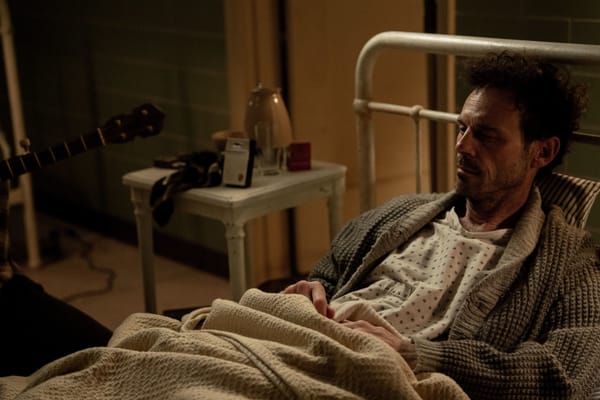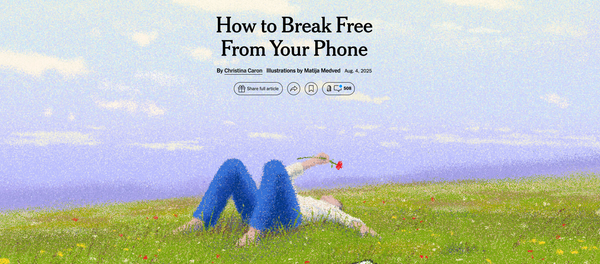Onsite Dispatch: Faithful Futures Summit
What I learned last week despite being stuck in a hotel room with Covid

Last week I attempted to attend the second-annual ecumenical gathering Faithful Futures: Guiding AI with Wisdom and Witness. I made my way to Minneapolis alongside fellow Presbyterian, Episcopal, Lutheran, and Methodist representatives with an interest in technology and faith.
As I was exiting the plane, I could feel that I was coming down with something. A truly dizzying few hours later, as the opening plenary was about to begin, I tested positive for Covid.
Ah well, at least I got to quarantine in a hotel room, away from my family, with several beloved ministry colleagues to drop off meals and meds. (Thank you Anthony, Lisa, Beth, and Lorenzo!)
Still, I did my best to live the life of an online conference participant, despite missing out on being part of an in-person affinity cohort tasked with mocking up practical applications for responsible AI use in religious education. (At least I think that's what I would have been doing.) And I'd like to share one particular bit of good news I took away from the event.
On the final day, huddled behind my mask in the far corner of an airport lounge, I read an interesting set of slides that had apparently been doing the rounds among the conference organizers. I can't find them posted publicly anywhere, but I found the researcher's public characterization of the study, so I'll work from that.
Nina Lutz, a doctoral student in the Human Centered Design Engineering Department at the University of Washington, was a research intern this summer at Microsoft and conducted a landscape study of religious leaders concerned about the trajectory of AI development. Among other things, she hosted a "interfaith red teaming workshop" in which some of these leaders participated.
Red teaming is when an otherwise friendly group simulates an adversarial posture to put pressure on a digital system for testing purposes. Usually this exercise is about identifying cybersecurity vulnerabilities, but in this case I gather than the feedback was more conceptual and scenario-based.
I'm gonna do my best to follow this strand of research closely, because I think the approach—set against the wider backdrop of the kinds of activities this conference was up to—are exactly what we need at a time when money is rolling in to R&D but meaning feels conspicuously absent.
A faith leader red team feels like an especially smart play because it brings religious perspectives to bear on big questions in AI in a way that "speaks the language" of developers.
I do believe the world needs the witness and guidance of religious leaders and the treasury of wisdom and practices we steward. But we have to find ways to render this witness comprehensible for people who have been formed outside of it—outside the church, yes, but also, increasingly, in a social milieu that is not being shaped by any sort of shared moral framework that the best of our tradition had a part in establishing and maintaining.
Quick Friday Recs
Trying not to let too many of these pile up!
Wired special issue on kids & tech/media – Some important coverage here, including a fun history of tech-based moral panic.
"Scapegoating the Algorithm" – Speaking of moral panics, I found this piece pretty helpful in thinking through the correlation / causation question with regard to the breakdown of our shared sense of reality and what social media has to do with it. The tory probably isn't as simple as we think.
Roots & Wings Fellowship – There's still time to apply to join what promises to be a fabulous program focused on intergenerational formation and worship. Get paid to innovate in community!
OK, two promos for things I'm involved with:
Faith Formation Creators Collective (Sept. 23–25, online) – We're getting close to this event where I'll be speaking about empowering learners with pedagogical knowledge in ways that are accessible and relevant to them. Also offering a storytelling workshop. I was on the design team for this event and can't wait to dive in with an energetic and creative community. I also don't mind saying I am blown away to be offering plenaries alongside the great Kelly Brown Douglas and my friend and mentor Mary Hess. [Summoning WaynesWorldNotWorthy.GIF ]
Neighborhood Economics (Sept. 29 – Oct. 1, Chicago) – A little more outside my wheelhouse, but I've really enjoyed reconnecting with this faith-adjacent community of mission-minded folks leveraging market tools to repair local economies. I'll be there Tuesday interviewing participants and speakers. If you are looking for experienced conversation partners who are leveraging sacred space and other church-owned real estate to fund ministry and mission, you fill find them at this event. Lots of other creative programming led by faith leaders as well. Scholarships available!



